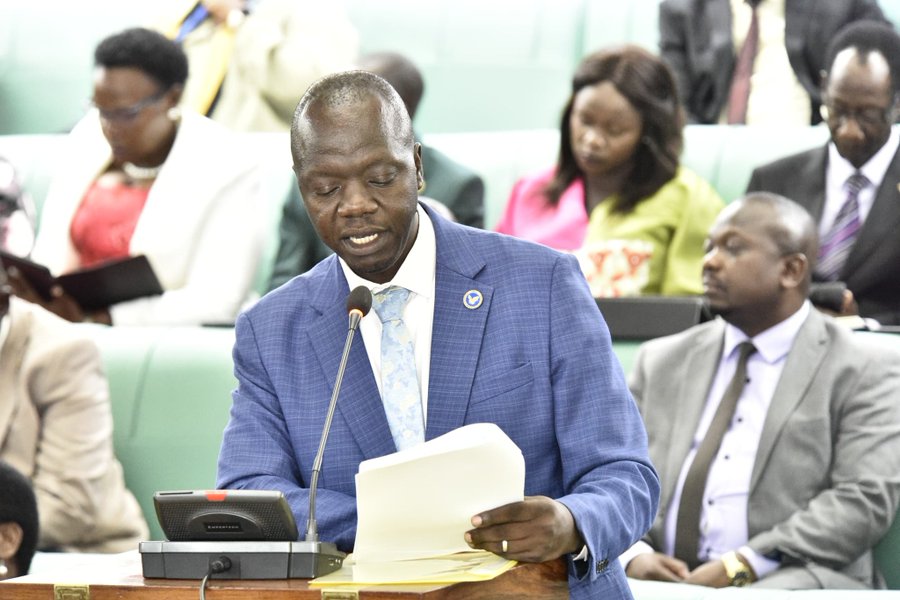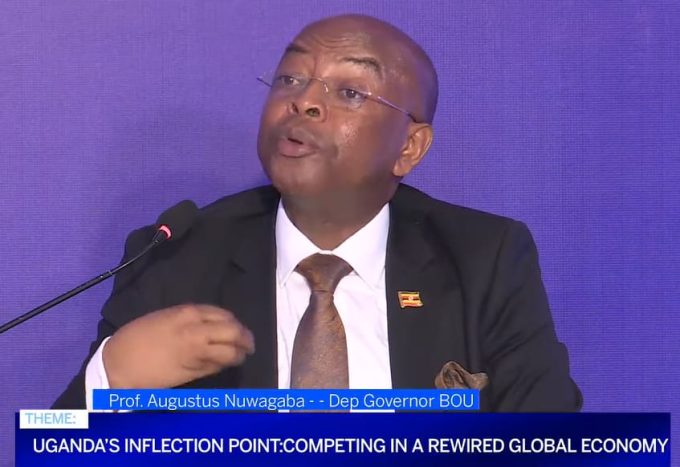Parliament Clears UGX 774 Billion Agriculture Loan Amid Idle Funds Outcry

Parliament has approved a UGX 774.3 billion loan from Citibank to fund the Enhancing Agricultural Production, Quality and Standards for Market Access Project, a flagship initiative meant to boost Uganda’s food safety, export competitiveness, and farmer incomes.
The decision, made during the October 29, 2025 sitting, sparked heated debate as legislators raised concerns that the Ministry of Agriculture still sits on previously approved loans worth over UGX 2.5 trillion — much of which remains unutilized.
Presenting the majority report, Robert Migadde, Vice Chairperson of the Committee on National Economy, acknowledged the ministry’s slow project execution but maintained that the new facility could transform Uganda’s agriculture if properly handled.
“As of December 2024, the Ministry was implementing seven externally funded projects worth UGX 2.5 trillion, yet only UGX 392.5 billion had been disbursed — a disbursement rate of just 16%,” Migadde revealed.
He urged the ministry to overhaul its project management systems, strengthen institutional capacity, and ensure faster procurement and monitoring processes to avoid previous pitfalls.
However, a minority report presented by MPs Hassan Kirumira (Katikamu South) and Charles Tebandeke (Bbale County) challenged the ministry’s credibility, citing failed or incomplete mechanisation centres in Buwama, Agwata, and Kiryandongo.
“In Agwata, the Ministry deceived the President that the centre is operational — yet it’s abandoned, bushy, and only guarded by Police. What a waste of taxpayers’ money!” Kirumira said.
The Opposition demanded a joint oversight visit by the Committees on Agriculture and National Economy before additional funds are released.
But State Minister for Finance, Henry Musasizi, defended the borrowing, describing it as a timely intervention to reduce Uganda’s agricultural export losses.
“Uganda loses over UGX 345 billion annually due to rejected exports. This project will help establish modern laboratories, testing and certification centres, and storage facilities that meet global standards,” he explained.
Musasizi added that the programme would improve food safety, enhance value addition, create rural jobs, and expand export markets.
“We are laying the foundation for food security, industrialisation, and export growth. This isn’t just borrowing — it’s investing in a standards-driven agricultural transformation,” he said.
Covering 69 districts across 13 agro-ecological zones, the project will feature national laboratories, pre-export facilities, veterinary quarantine stations, and agro-processing and farmer training centres.
Migadde described it as an ambitious but necessary step towards economic transformation and urged real-time monitoring, independent audits, and local capacity building to ensure results.
At the end of the 13-year repayment period, Uganda will have paid UGX 2.74 trillion, prompting MPs to advise the Ministry of Finance to renegotiate the loan’s premium cost to ease debt pressure.
Despite dissenting voices, Deputy Speaker Thomas Tayebwa put the motion to a vote — and the loan sailed through, opening a new chapter in Uganda’s bid to modernise its agriculture and meet international market standards.
Latest News
Stanbic Bank Supports Life-saving Maternal care
Stanbic Bank maternal healthcare support Uganda is making a meaningful impact through...
Uganda’s Economy at Inflection Point
Uganda’s economy at inflection point — this was the key message from...
Pamela Turyatunga’s Jasiri Win: What It Means for Absa Bank Uganda and the Future of Sustainability Leadership
From Recognition to Reinforcement: Pamela Turyatunga’s Jasiri Award Signals Absa Uganda’s Sustainability...
Stanbic Names Oigara CEO as Mweheire Steps Down
Stanbic names Oigara CEO in a significant leadership transition that signals the...















